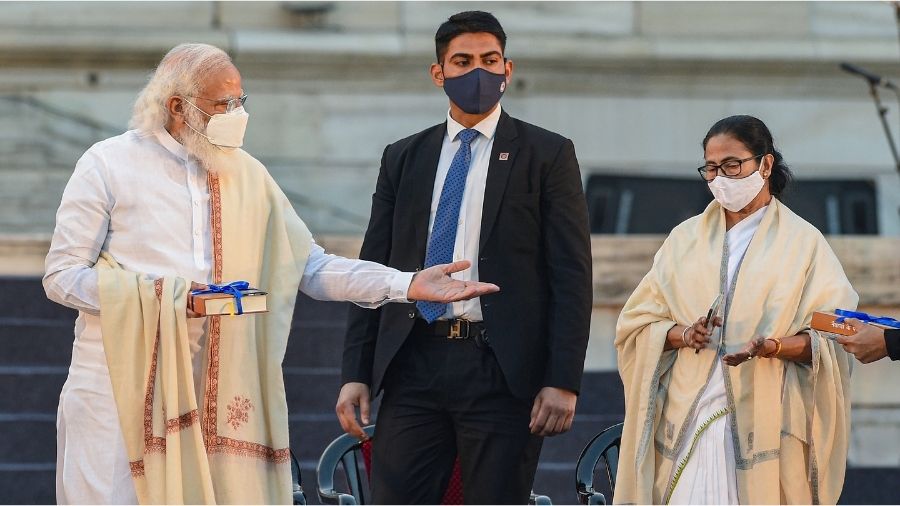West Bengal is still reeling from the surprise invocation of Ram on Subhas Bose’s birth anniversary celebrations at Victoria Memorial Hall. Now in war, the war cry and its rhetoric is no less important than the weaponry. The cries might fall on the ear as ululations, whoops, hisses, but they are wrapped in some primeval way with the senses and the sentiments. There was the rebel cry from the American Civil War. And “hurrah” was used by Danish and German forces in the 19th century. Ei ei oh is a Japanese war cry and hooyah was used by the US Navy. War cries must have involved a certain art, for in his epics even the great Homer identifies Menelaus as “master of the war cry” and Diomedes too.
In pain, God’s name
Careful study of battle orations from the middle ages has revealed a certain pattern in coinages. They seem to have shrewd psychological and managerial reasons. And as history is testimony, it is easier to bring together large numbers in the name of a common god and thereafter proceed to instruct, urge, appeal and charge in his or her name. So there is Allahu Akbar, Har Har Mahadev, Deus Vult or God wills it and Odin owns you all --- Odin is a god in Germanic mythology. The Homeric battle cry of alala is not some random assemblage of words either but an invocation to a Greek goddess of embattled genealogy, quite literally. Alala has a father, Polemos, who is the personification of war; an aunt, Envo, who is a war goddess; and her uncle Ares is a war god.
Shaken, not stirred
War cries are not just meant to solder constituencies, they also remind one of the consequences of not warring or failure. There is a good deal of equivocation too. The inevitability of death is cushioned with a promise of a glorious afterlife. Merdeka atau Mati, meaning freedom or death, was used during the Indonesian war of independence. The Argentine General Jose de Saint Martin popularised the chant, Seamos libres, que lo demás no importa nada!... Let's be free, nothing else matters! There is the Norwegian cry of Til Valhall or To Valhalla. In Norse mythology, those who die in combat end up in Valhalla. Right now, Bengal is rife with cries. And yet it is not a war situation, just a democracy situation.
God save the people.










